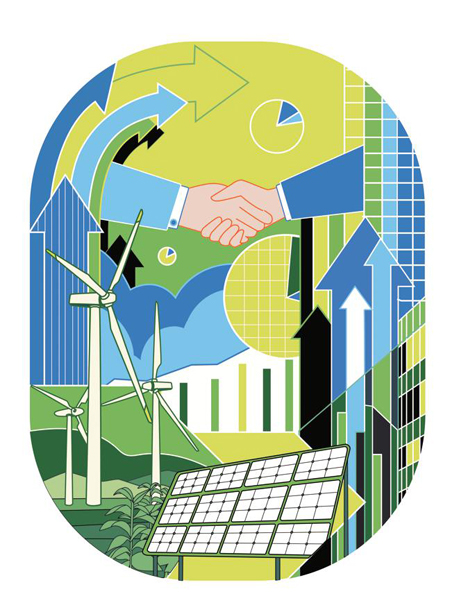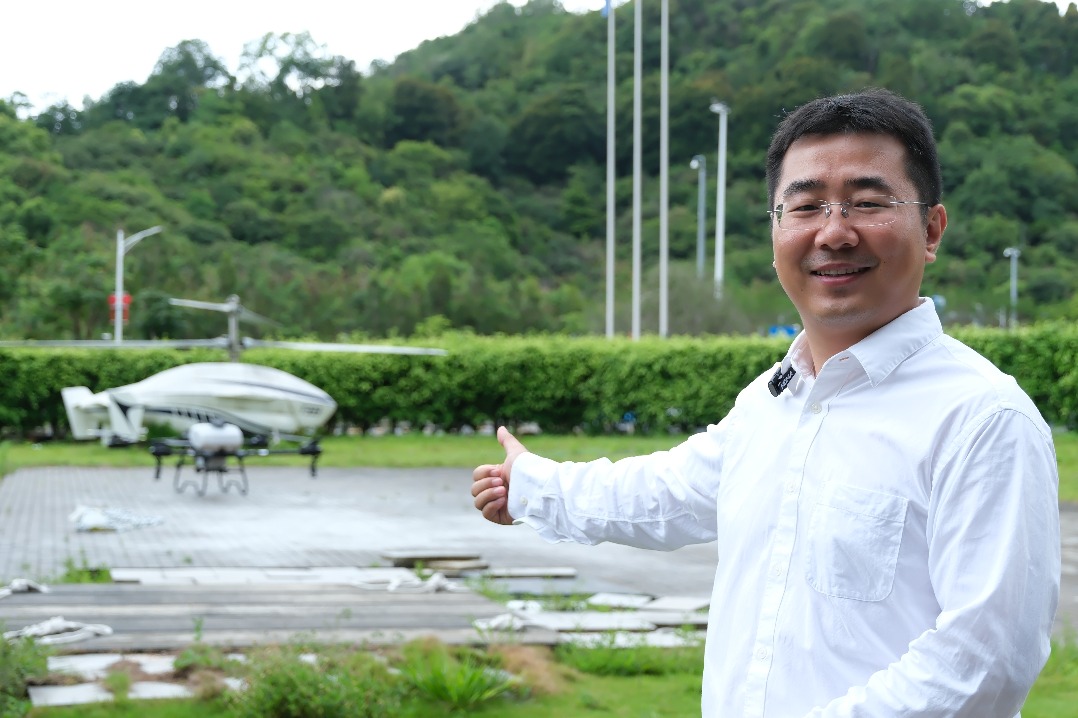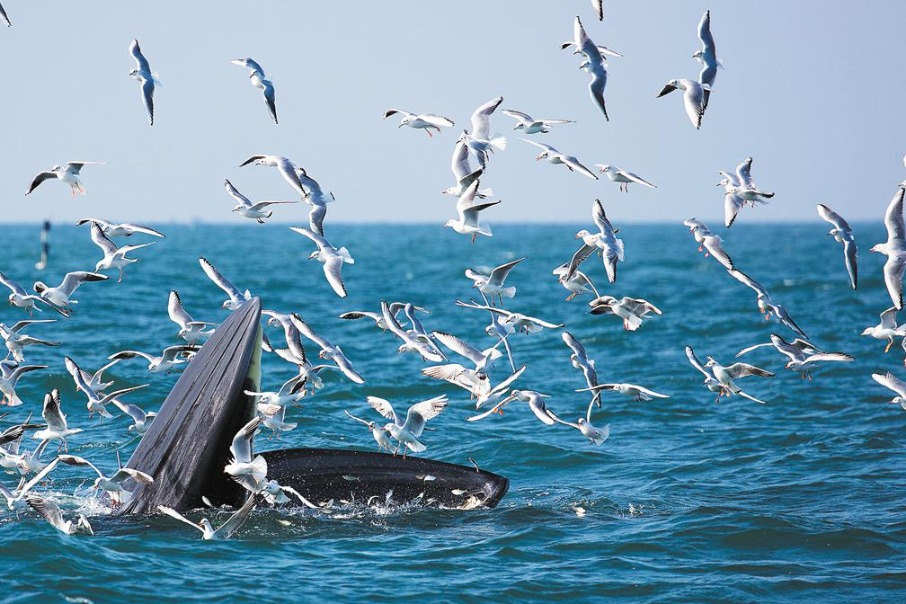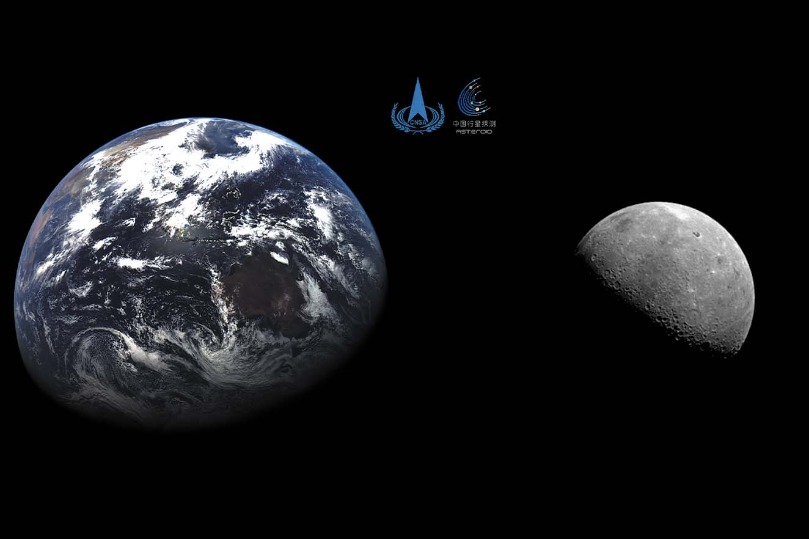Stockholm conference relevant 50 years on


In many ways, sustainable development is perhaps like sailing a ship to a far-away shore: the goals are often distant, the voyage often long, and the coordinates complicated. Unanticipated headwinds or tidal waves can throw everything off course, with devastating consequences. Yet, ultimately, even the most elusive shore is within reach, if we stay the course.
The world's journey to collectively save our planet began in 1972 in Stockholm, at the UN Conference on the Human Environment, where the international community recognized, for the first time, that human development and the state of our environment were interconnected. The bottom line: people's well-being, including the chance to end poverty, depends on nature remaining stable and intact.
Today, more than half the global economy and 1.2 billion jobs also depend on nature. So, 50 years on, the urgency of putting this into action-in policies and practices-is as pertinent as ever and indeed mounting.
Until now, human progress has come at the cost of our climate, biodiversity, air, water and soil. We are currently on track to overshoot the 1.5 degrees Celsius Paris Agreement target by more than double-which would leave much of our planet uninhabitable. More than 1 million species also face extinction, many within decades, as their world is destroyed at an unprecedented rate. Humankind is also increasingly at risk: according to the Lancet, pollution has caused one in six deaths globally for the last five years-with hazardous air and toxic chemical pollution growing.
Those who attended the 1972 Stockholm conference saw that environmental challenges are interconnected and must be tackled together, along with poverty, to provide for human development that our planet can sustain. Visionary for its time, this idea eventually paved the way for the Sustainable Development Goals: to end poverty and protect the planet by 2030.
The landmark conference half a century ago also led to the United Nations Environment Programme's establishment, along with World Environment Day, June 5. It further shaped China's environmental journey, including its first dedicated environmental governance institutions.
In 2020, President Xi Jinping pledged that China would peak its carbon emissions before 2030 and achieve carbon neutrality before 2060. This dual target has game-changing potential. Given the size of its economy, China is a top emitter. Yet it also leads in many sectors critical to the green transition, including solar and hydrogen power.
Turning ambition into action will test all countries. To keep the Paris Agreement target within reach, we must collectively cut carbon emissions by 45 percent by 2030. We also need to fundamentally reshape our relationship with nature-by halting biodiversity loss and pollution-which are further exacerbated by rising temperatures, while also being key to fighting climate change.
Three actions are needed globally to achieve this. First, we must strengthen international cooperation, as climate change transcends borders. This includes agreeing on an ambitious, measurable and targeted post-2020 global biodiversity framework at the UN Biodiversity Conference in Kunming later this year.
More concrete commitments on rapidly decarbonizing our economies at the UN Climate Change Conference in Egypt in November will also be critical. At the recent Stockholm+50 National Consultations in China supported by the UNDP and the UNEP-consisting of dialogues between policymakers, business leaders, researchers and youth-participants encouraged greater South-South and North-South cooperation. This includes increasing international best-practice sharing, as well as cooperation in developing and transferring green technology.
Second, we must enlarge and incentivize sustainable financing. The global finance gap to meet the SDGs by 2030 soared during the pandemic to $100 trillion. This represents an approximately $10 trillion annual shortfall for fighting climate change, poverty and other critical challenges. Bridging this requires redirecting at least 10 percent of global economic output every year toward clean energy, conservation, education and other vital areas.
While this is a sizable investment, it makes clear economic sense: after all, no business can be stable and lasting in a future of escalating climate-linked disasters, resource scarcity and broken social contracts. Conversely, a nature-positive economy could create more than $10 trillion annually in new business value by 2030, adding 395 million jobs worldwide.
To realize this, our China National Stockholm+50 consultations recommended enhancing financial regulations to standardize green finance, making environmental disclosures mandatory, as well as increasing monetary incentives and disincentives. They also suggested that guidelines for innovating financial tools (that is, SDG-linked bonds) be further strengthened, to incentivize the green transition.
Third, it is crucial to ensure that the transition to a low-carbon, nature-positive economy is also just and inclusive-protecting people and our planet together. Panelists at the national Stockholm+50 consultations remarked that the key is in turning environmental resources into income-generating opportunities.
For example, promoting eco-tourism in Sanjiangyuan National Park in Qinghai province, the NGO Shan Shui Conservation Center, together with rural cooperatives, offers free guide training to local people. Many herders have become guides and now organize snow leopard tours, earning higher incomes, while supporting conservation. In a giant panda protected area in Sichuan province, an eco-agriculture program was expanded to encourage ecological beekeeping. Involving and empowering local communities in environmental protection efforts, as well as ensuring they benefit from them, is vital for effective, lasting nature protection.
As Stockholm +50 national consultations take place around the world-culminating in anniversary celebrations at a high-level summit in Sweden on June 2 and 3-it is hoped they will add urgent momentum to the SDGs, by bringing all of society together, including political, business and youth leaders. Outcomes should include national commitments on climate and nature. The UNDP, the UNEP and the whole UN system stand ready to support them, with evidence-based decision-making, technical advice and multilateral platforms.
Fifty years ago, delegates recognized we have "Only One Earth". Together, we can fulfil the promise of protecting it, so that a future for humankind and all the Earth's creatures is viable-but only if we act today.
Beate Trankmann is UNDP resident representative in China; and Tu Ruihe is head of UNEP China Office.
The views don't necessarily represent those of China Daily.
If you have a specific expertise, or would like to share your thought about our stories, then send us your writings at opinion@chinadaily.com.cn, and comment@chinadaily.com.cn.


































